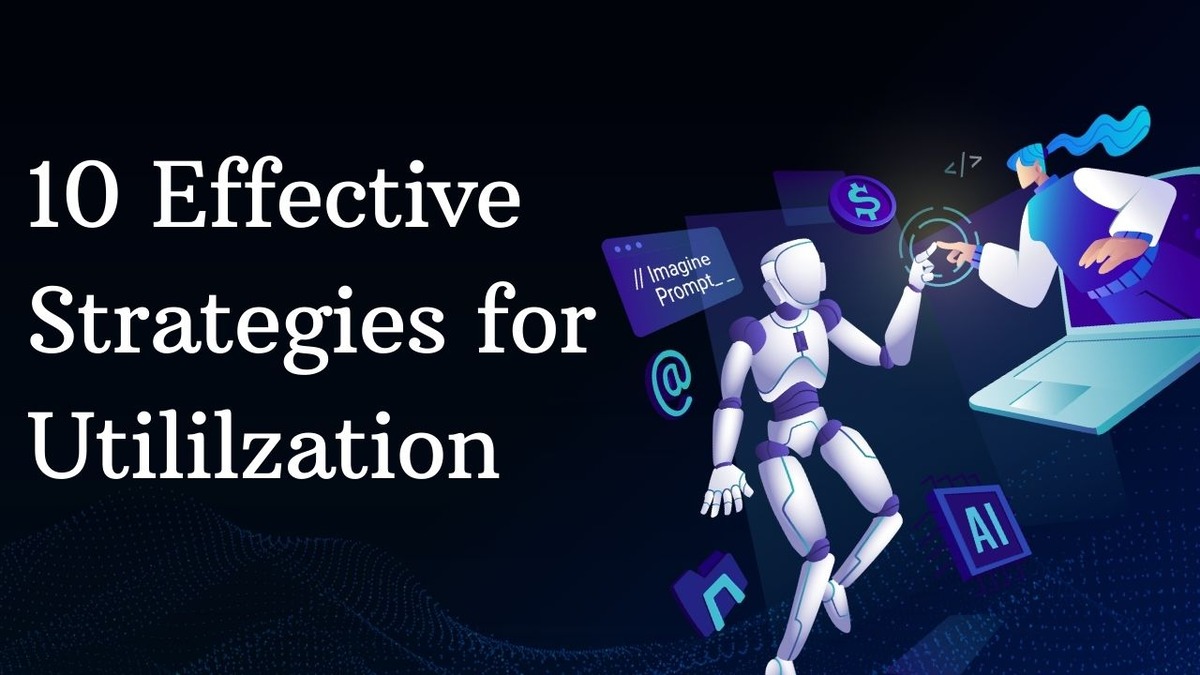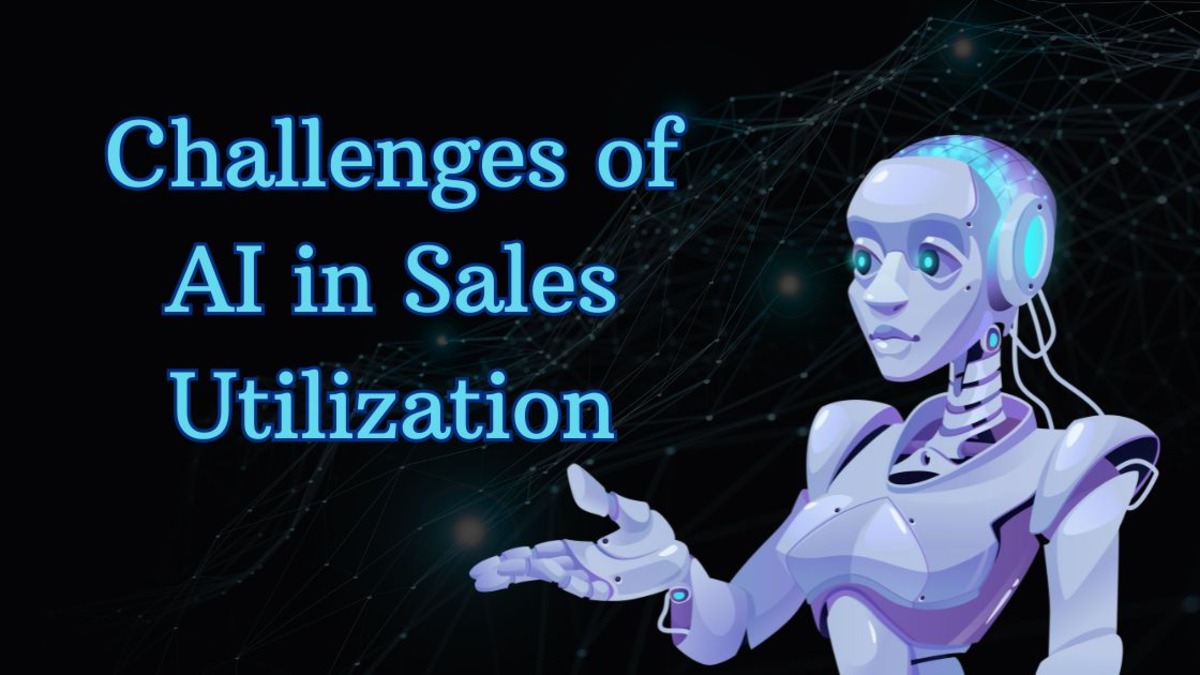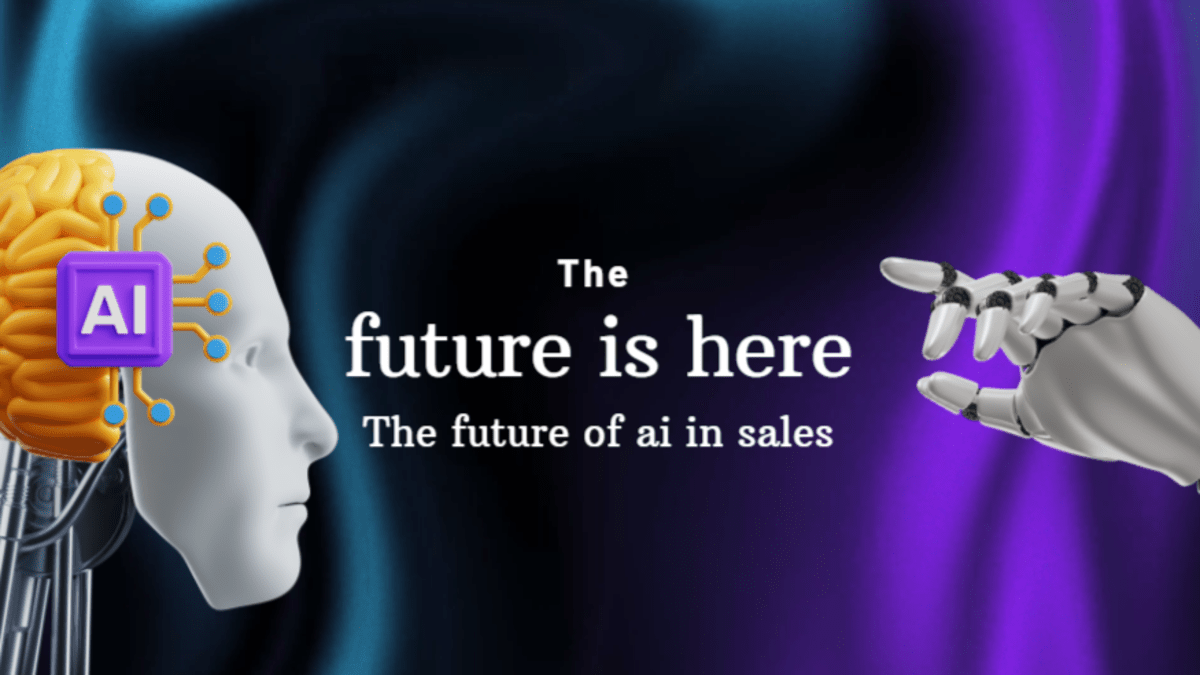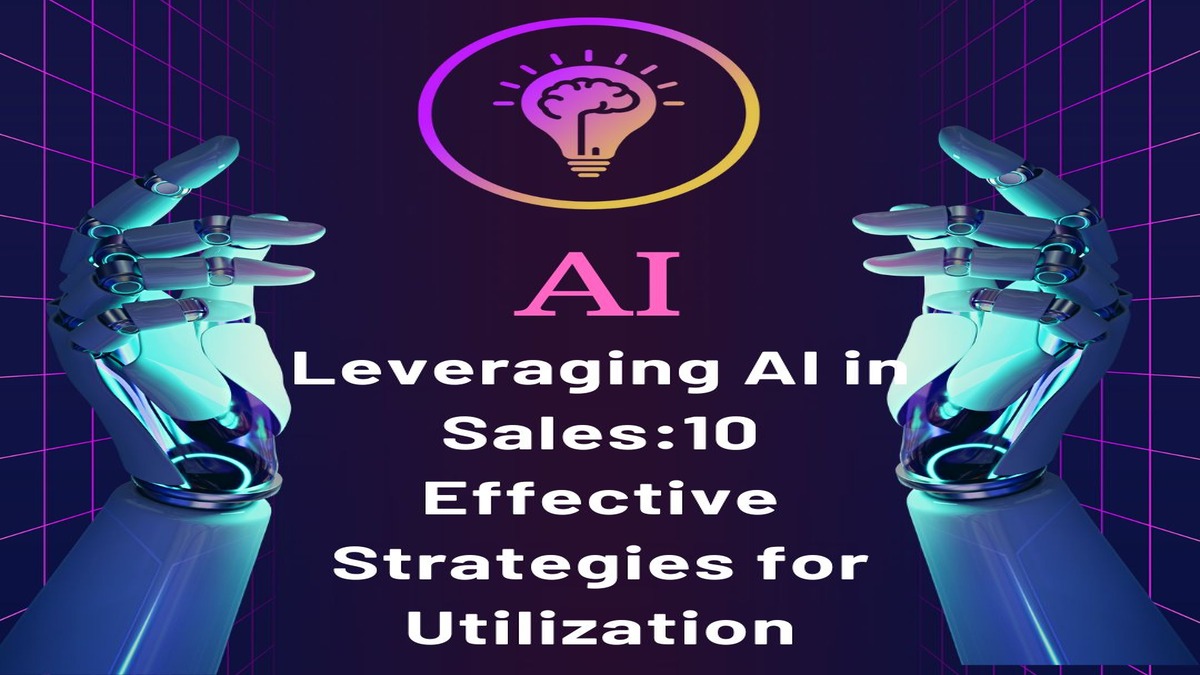What is AI in sales?
AI in sales refers to the application of artificial intelligence technologies to enhance and optimize various aspects of the sales process. By leveraging AI, sales teams can automate repetitive tasks, analyze vast amounts of data, and gain actionable insights that drive decision-making. AI tools can predict customer behavior, personalize marketing messages, and identify high-potential leads, enabling sales representatives to focus on building relationships and closing deals. Additionally, AI-powered analytics can provide real-time feedback on sales strategies, helping teams to adapt and improve their approaches. Overall, AI in sales empowers businesses to increase efficiency, improve customer interactions, and ultimately drive higher sales performance and revenue growth.
Why AI in Sales is Important?
AI in sales is increasingly important for several key reasons. Let me break this down for you:
1. Boost efficiency through automation
Efficiency and productivity boost AI can automate many time-consuming, repetitive tasks that salespeople traditionally handle. This frees up sales teams to focus on what they do best – building relationships and closing deals.
For example, AI can automatically update CRM records, schedule follow-ups, and even draft initial email responses. This means salespeople can spend more time actually selling, rather than on administrative tasks.
2. Empower Decision Making
Enhanced decision-making AI excels at analyzing vast amounts of data and identifying patterns that humans might miss. This leads to more informed, data-driven decision making.
Imagine an AI system that can analyze years of sales data and market trends to predict which products are likely to sell best in the coming quarter. This kind of insight can be invaluable for sales strategy.
3. Lead Scoring
Improved Lead Scoring and Prioritization Not all leads are created equal, and AI is exceptional at determining which ones are most likely to convert.
For instance, an AI system might notice that companies that download a specific white paper and then visit your pricing page within 48 hours are highly likely to make a purchase. This allows sales teams to focus their efforts where they’re most likely to pay off.
4. Personalized recommendations
Personalization at Scale Modern customers expect personalized experiences, but delivering this at scale can be challenging. AI makes it possible.
An AI system can analyze a customer’s past purchases, browsing history, and even social media activity to tailor product recommendations and sales pitches to their specific needs and interests.
5. Automated Customer Interaction
24/7 Customer Engagement AI-powered chatbots and virtual assistants can engage with customers around the clock, answering questions and even making sales when human salespeople are off the clock.
6. Sales Forecasting
Predictive Sales Forecasting Accurate sales forecasting is crucial for business planning, and AI can significantly improve its accuracy by considering a wide range of factors and historical data.
7. Leveling with Accessible AI Tools
Leveling the Playing Field AI tools are becoming more accessible, allowing smaller businesses to compete with larger ones by leveraging advanced analytics and automation capabilities.
8. Adapting to Customer Behaviors with AI
Adapting to Changing Customer Behaviors As customer behaviors and preferences evolve rapidly, especially in the digital age, AI can quickly identify and adapt to these changes, keeping sales strategies relevant and effective.
9. Reduce human bias
Reducing Human Bias While not eliminating it entirely, AI can help reduce human biases in the sales process, leading to more equitable treatment of customers and potentially opening up new market opportunities.
10. Improvement Through Machine Learning
Continuous Improvement AI systems can learn from each interaction, constantly improving their performance over time. This means your sales processes can become more efficient and effective the more you use AI.
In essence, AI in sales is important because it enhances human capabilities, drives efficiency, enables data-driven decisions, and allows for personalization at scale. It’s not about replacing human salespeople, but about giving them superpowers to perform their jobs more effectively in an increasingly complex and fast-paced business environment.
Benefits of AI in Sales
Here are some key benefits of using AI in sales:
1. Increased Efficiency
AI automates routine sales tasks like data entry and lead qualification, allowing reps to focus more time on closing deals. AI can analyze large volumes of data to provide actionable insights that were previously difficult to uncover manually.
2. Enhanced Personalization
AI’s data analysis capabilities enable tailoring interactions with customers based on their specific behavior and preferences. This helps customers feel understood and valued, dramatically increasing engagement metrics.
3. Improved Lead Scoring and Prioritization
AI algorithms can analyze historical data to predict which leads are most likely to convert, allowing reps to focus on the best opportunities. AI can also determine the optimal time to contact leads when they are most receptive.
4. Optimized Sales Forecasting
AI can produce more accurate sales forecasts by analyzing data points like deal size, product fit, competition, customer budget, region, timing and influencers. This enables sales teams to better plan for the future.
5. Personalized Recommendations
AI can suggest relevant products to upsell or cross-sell to customers based on their behavior and purchase history. This increases average order value.
6. Enhanced Customer Understanding
AI provides sales teams with deeper insights into customer needs, informing every aspect of the sales process from pitches to content to outreach. This helps reps better tailor their approach to each customer.
By harnessing the power of AI, sales teams can boost efficiency, personalization and decision-making to drive significant revenue growth. While challenges exist around integrating AI into existing workflows, the benefits are clear for sales organizations looking to stay ahead of the curve.
10 Effective Strategies for Utilization

1. Supercharge Your Lead Scoring
Gone are the days of manually sifting through leads, trying to figure out who’s hot and who’s not. AI-powered lead scoring is like having a crystal ball that tells you which prospects are most likely to convert.
For example, imagine you’re selling software to small businesses. Your AI system might notice that companies who’ve recently hired new IT staff or those who’ve been searching for productivity tools are more likely to buy. It’ll automatically bump these leads to the top of your list, so you can focus your energy where it matters most.
2. Get Personal with AI-Driven Content
We all know that personalization is key in sales, but who has the time to tailor every single message? Enter AI-powered content generation. This nifty tool can create custom emails, proposals, and even social media posts that speak directly to each prospect’s needs and interests.
Let’s say you’re targeting a potential client in the healthcare industry. Your AI assistant could whip up an email that mentions recent healthcare regulations, sprinkles in some industry-specific lingo, and highlights how your product addresses their unique challenges. It’s like having a mini-you that knows exactly what to say to each prospect!
3. Predict the Future with Sales Forecasting
Okay, maybe AI can’t tell you next week’s lottery numbers, but it can give you a pretty good idea of what your sales pipeline will look like in the coming months. AI-driven sales forecasting uses historical data, market trends, and current pipeline information to predict future sales with scary accuracy.
For instance, if you’re in retail, the AI might notice that sales of winter coats spike in September, not when it actually gets cold. Armed with this knowledge, you can stock up and launch your marketing campaigns at just the right time.
4. Chat It Up with AI-Powered Chatbots
Think of AI chatbots as your tireless sales assistants who work 24/7 without complaining about overtime. These clever little bots can handle initial customer inquiries, qualify leads, and even schedule meetings for your human sales team.
Picture this: It’s 2 AM, and a potential customer in a different time zone visits your website with questions about your product. Instead of losing that lead, your AI chatbot jumps in, answers their questions, and books a follow-up call with a sales rep for the next day. Now that’s what I call round-the-clock service!
5. Master the Art of Timing with Predictive Analytics
Timing is everything in sales, and AI is like a Swiss watch when it comes to precision. Predictive analytics can tell you the best time to reach out to a prospect, what channel to use, and even what tone to take in your communication.
For example, the AI might learn that your B2B software clients are most responsive to emails sent on Tuesday mornings, while your consumer product customers prefer a casual text message on Friday afternoons. It’s like having a sixth sense for when your prospects are most likely to say “yes.”
6. Upgrade Your CRM with AI Insights
Customer Relationship Management (CRM) systems are the backbone of any sales operation. Now, imagine supercharging your CRM with AI. It’s like giving your sales data a PhD in customer behavior.
An AI-enhanced CRM doesn’t just store information; it analyzes it to uncover hidden patterns and opportunities. It might notice that customers who buy product A often come back for product B within three months. Armed with this intel, you can set up perfectly timed cross-sell campaigns that feel almost psychic to your customers.
7. Automate the Boring Stuff
Let’s face it: some parts of sales are just plain tedious. Data entry, scheduling, follow-up reminders – these tasks are necessary but time-consuming. AI automation tools can take these off your plate, freeing you up to do what you do best: building relationships and closing deals.
Imagine never having to manually update a sales record or set a follow-up reminder again. Your AI assistant could listen in on your sales calls (with permission, of course), automatically update your CRM with key points discussed, and even draft a follow-up email for your review. It’s like having a super-efficient personal assistant who never needs a coffee break.
8. Get Smarter About Pricing with AI
Pricing can make or break a deal, and AI is getting scary good at optimizing it. AI-powered pricing tools can analyze market conditions, competitor pricing, customer behavior, and even social media sentiment to suggest the perfect price point for each deal.
Let’s say you’re selling advertising space. Your AI pricing tool might notice that during major sporting events, demand for ad spots skyrockets. It could automatically adjust your pricing to maximize revenue during these peak times, then offer discounts during slower periods to keep the business flowing.
9. Turn Data into Gold with Advanced Analytics
In 2024, data is the new oil, and AI is the refinery that turns it into gold. Advanced AI analytics can sift through mountains of data to uncover insights that would take humans years to find.
For instance, your AI might discover that customers who complain about a specific feature are actually your most loyal in the long run. Why? Because they care enough to give feedback and stick around to see improvements. This kind of counterintuitive insight could reshape your entire customer retention strategy.
10. Embrace the AI Sales Coach
Last but not least, AI is becoming an incredibly effective tool for coaching and training sales teams. AI-powered coaching platforms can analyze sales calls, email exchanges, and even body language in video meetings to provide personalized feedback and improvement suggestions.
Imagine having a coach that can tell you exactly why your last pitch didn’t land, suggest specific phrases that tend to resonate with similar clients, and even help you practice your delivery. It’s like having a world-class sales trainer in your pocket, available 24/7.
Challenges of AI in Sales

Integrating AI into sales processes presents several challenges that organizations must navigate effectively. Here are some of the key obstacles:
Data Quality and Accuracy
AI systems rely heavily on high-quality data for training and making predictions. Challenges include:
- Incomplete or Inaccurate Data: Flawed data can lead to misguided insights and poor decision-making, adversely affecting sales strategies.
- Bias in Data: AI algorithms can inadvertently reinforce existing biases, resulting in discriminatory practices. Regular audits of AI models are necessary to ensure fairness and mitigate bias.
Integration with Existing Systems
Integrating AI tools with existing Customer Relationship Management (CRM) systems can be complex. This includes:
- Data Compatibility: Ensuring that various data sources work together seamlessly is crucial to avoid data silos that hinder AI effectiveness.
- Infrastructure Modifications: Significant changes to existing systems may be required, which can be resource-intensive and disruptive.
Skills Gap
The successful implementation of AI in sales requires a workforce skilled in both technology and sales strategy. Challenges include:
- Training Needs: Sales teams often lack the necessary technical expertise to leverage AI tools effectively. Targeted training programs are essential to bridge this gap.
- Collaboration with Experts: Organizations may need to partner with AI specialists to ensure proper implementation and use of AI technologies.
Ethical Considerations
The ethical deployment of AI in sales is critical. Key issues include:
- Transparency and Fairness: Businesses must ensure that AI systems operate transparently and do not perpetuate biases. Continuous monitoring and auditing are necessary to maintain ethical standards.
- Customer Privacy: Balancing personalization with respect for customer privacy is a significant challenge. Sales teams must ensure that data usage complies with privacy regulations while still delivering personalized experiences.
Uncertain Return on Investment (ROI)
Calculating the ROI of AI initiatives can be challenging. Organizations often face:
- Long-term Benefits: The impact of AI on sales growth may not be immediately quantifiable, making it difficult to justify investments in AI technologies.
- Cost of Implementation: Initial costs for implementing AI solutions can be substantial, requiring thorough cost-benefit analyses to assess potential long-term gains.
The Future of AI in Sales: Trends and Predictions

As we look ahead, artificial intelligence is set to revolutionize the sales landscape in profound ways. Here’s a glimpse into what the future might hold:
1. Hyper-Personalization
AI will take personalization to new heights. Instead of segmenting customers into broad groups, AI will enable true one-to-one personalization at scale.
- Predictive Personalization: AI will anticipate customer needs before they even express them. Imagine an AI that notices a customer’s car lease is ending soon and proactively reaches out with personalized offers for new vehicles that match their preferences and budget.
- Dynamic Content Generation: AI will create highly personalized content in real-time. Sales emails, product recommendations, and even entire websites could change on the fly based on who’s viewing them.
2. AI-Powered Sales Assistants
The next generation of AI assistants will be more than just scheduling tools. They’ll become integral members of the sales team.
- Contextual Awareness: These assistants will understand the nuances of conversations, picking up on tone, sentiment, and even unspoken cues in video calls.
- Proactive Suggestions: During sales calls, AI assistants might whisper suggestions in the salesperson’s ear (or display them on screen), offering real-time advice on how to address objections or when to push for a close.
3. Predictive Analytics on Steroids
Future AI systems will not just predict what might happen, but will offer specific strategies to influence outcomes.
- Opportunity Forecasting: AI will analyze market trends, economic indicators, and company-specific data to predict not just which deals are likely to close, but also identify potential new markets and opportunities.
- Churn Prevention: Advanced AI will flag at-risk customers and suggest personalized retention strategies before they even think about leaving.
4. Augmented Reality (AR) and Virtual Reality (VR) in Sales
AI will power immersive sales experiences, especially for complex or high-value products.
- Virtual Product Demos: Imagine an AI-guided VR experience that allows customers to “use” a product before buying it, with the AI adapting the demo based on the customer’s reactions and interests.
- AR Sales Environments: AI could create augmented reality environments for B2B sales, allowing clients to visualize how equipment would fit in their space or how software would integrate with their existing systems.
5. Emotional Intelligence in AI
Future AI systems will be able to read and respond to human emotions, adding a new layer of sophistication to sales interactions.
- Sentiment Analysis: AI will analyze vocal tones, facial expressions, and language patterns to gauge a customer’s emotional state and adjust the sales approach accordingly.
- Empathy Training: AI will help train salespeople to be more emotionally intelligent, offering feedback on their interactions and suggesting ways to build stronger emotional connections with clients.
6. Ethical AI and Transparency
As AI becomes more prevalent, there will be a greater focus on ethical use and transparency.
- Explainable AI: Sales AI will be able to justify its recommendations, allowing salespeople and customers to understand the reasoning behind suggestions.
- Bias Detection and Correction: Advanced AI systems will actively work to identify and mitigate biases in sales processes, ensuring fair treatment of all customers.
7. Integration of Internet of Things (IoT) Data
AI will leverage data from IoT devices to inform sales strategies and provide value-added services.
- Predictive Maintenance Upselling: For B2B sales, AI could analyze data from IoT sensors on sold equipment to predict when maintenance is needed and proactively offer service contracts.
- Usage-Based Recommendations: AI could analyze how customers use products (via IoT data) to suggest upgrades or complementary products that enhance their experience.
8. Voice and Natural Language Processing
As voice technology improves, it will become a more integral part of the sales process.
- Voice-Activated CRM: Salespeople might update records or retrieve information through voice commands, making data entry more natural and efficient.
- Multilingual AI: Advanced language processing will break down language barriers, allowing salespeople to communicate seamlessly with clients around the world.
9. Blockchain and AI in Sales
The integration of blockchain technology with AI could revolutionize contract management and build trust in AI-driven sales processes.
- Smart Contracts: AI could draft and execute smart contracts, automating complex deal structures and ensuring all parties meet their obligations.
- Transparent AI Decision-Making: Blockchain could provide an immutable record of AI decision-making processes, building trust and accountability.
10. Continuous Learning and Adaptation
Future AI systems will be in a constant state of learning and improvement.
- Real-Time Strategy Adjustment: AI will continuously analyze sales performance data, adjusting strategies on the fly to optimize results.
- Cross-Functional Learning: Sales AI will learn not just from sales data, but will integrate insights from marketing, customer service, and even product development to create a holistic approach to customer relationships.
The future of AI in sales is bright and full of potential. While these advancements promise to make sales more efficient and effective, it’s important to remember that the human touch will remain crucial. The most successful sales organizations of the future will be those that find the right balance between AI capabilities and human skills like empathy, creativity, and relationship-building.
Conclusion
Employing AI in sales is crucial for boosting efficiency and effectiveness in a competitive market. AI automates tasks, provides predictive insights, and personalizes interactions, leading to higher conversion rates and improved performance. The ten strategies for using AI show its power to streamline processes and support data-driven decisions. As AI evolves, its integration will enhance workflows and help sales teams build strong customer relationships, making it essential for future growth and competitiveness.
FAQs for AI in Sales
Here are the top 10 FAQs for the article “Employing AI in Sales and 10 Ways to Utilize it in Sales” with concise answers:
1. What is AI in sales?
Ans. AI in sales refers to using artificial intelligence technology to improve and automate the sales process. It analyzes data to identify patterns, predict customer behaviors, and provide insights to help sales teams make informed decisions and personalize interactions.
2. How can AI be used in sales forecasting?
Ans. AI-driven sales forecasting uses historical data and machine learning to predict future sales trends more accurately. This allows businesses to make informed decisions on inventory, staffing, and budget allocations.
3. What are some examples of AI in lead generation?
Ans. AI tools can automate lead generation by identifying potential customers based on specific behaviors and preferences across digital platforms. This enhances the efficiency and effectiveness of lead generation campaigns.
4. How does AI enable sales automation?
Ans. AI takes over repetitive and administrative tasks, such as scheduling meetings, sending follow-up emails, and updating CRM entries. This frees up sales professionals to focus on more strategic activities like negotiating deals and building client relationships.
5. What are the benefits of using AI for personalization in sales?
Ans. By analyzing customer data, AI can tailor messages, recommendations, and content to individual preferences and behaviors. This significantly impacts customer engagement and satisfaction.
6. How can AI be used for sales enablement?
Ans. AI automates repetitive tasks, provides personalized insights, and improves the overall efficiency of sales processes. It can make content recommendations, assess sales calls, and provide valuable insights into customer behavior and preferences.
7. What are some top AI sales tools?
Ans. Some popular AI sales tools include Salesforce Einstein for CRM enhancement, Gong for conversation intelligence, and HubSpot for marketing automation. These tools help with lead scoring, predictive analytics, and automating repetitive tasks.
8. How can AI enhance sales training and coaching?
Ans. AI can develop sales teams through personalized training programs and performance coaching. It analyzes sales calls and interactions to offer feedback and improvement suggestions.
9. What are the challenges of implementing AI in sales?
Ans. Challenges include ensuring data quality and accuracy, integrating AI with existing systems, bridging the skills gap, addressing ethical considerations, and demonstrating a clear return on investment.
10. What is the future of AI in sales?
Ans. With advancements in machine learning, natural language processing, and data analytics, AI’s prominence in sales is set to grow exponentially. Proactively adopting these innovations and fostering a culture of continuous improvement will be key to unlocking AI’s vast potential in sales.

